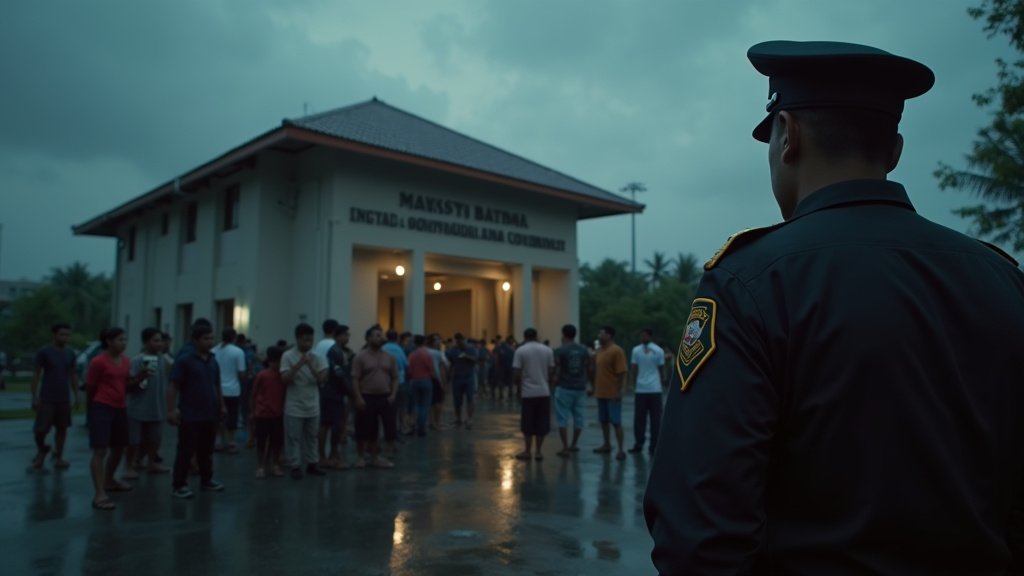Malaysia has deported a significant number of undocumented migrants, with over 28,000 individuals removed from the country between January 1 and July 6, 2025. These figures, revealed in a parliamentary written reply from the Ministry of Home Affairs, highlight the scale of the nation’s ongoing immigration enforcement efforts.
Stark Numbers Emerge from Home Ministry Data
The official data indicates that a total of 28,525 undocumented migrants were deported during this seven-month period. The demographic breakdown reveals a notable gender disparity in those subjected to deportation, with adult men constituting the largest group at 21,039 individuals, representing 74% of the total. Adult women accounted for 6,145 deportees (21%), while 778 boys (3%) and 563 girls (2%) were also deported.
Nationalities Targeted in Enforcement Drive
Indonesian citizens formed the largest contingent among the deported migrants, with 11,085 individuals (39%) returned to their home country. Myanmar nationals followed, with 4,885 deportees (17%), and Filipinos numbered 4,465 (16%). The deportations are carried out under the Immigration Act 1959/63 (Act 155), which empowers authorities to return individuals to their country of origin.
Legal Framework and Non-Refoulement Stance
The Ministry of Home Affairs clarified its policy regarding refugees, stating that Malaysia, while not a signatory to the United Nations’ 1951 Refugee Convention, upholds the humanitarian principle of non-refoulement. In principle, Malaysia does not deport holders of United Nations High Commissioner for Refugees (UNHCR) cards, except in cases of resettlement to a third country. This statement was made in response to a query from Syerleena Abdul Rashid, who sought details on deportations and measures to ensure compliance with the non-refoulement principle.
Broader Context and Enforcement Operations
These figures reflect a continuation of Malaysia’s strategy to manage and reduce the number of undocumented migrants within its borders. The government has consistently engaged in enforcement operations, including previous repatriation programs designed to allow foreigners violating immigration laws to voluntarily present themselves for compound payment and subsequent return. These happenings underscore the complex realities faced by migrants in Malaysia, many of whom seek economic opportunities but risk detention and deportation due to a lack of proper documentation. The scale of these deportations is part of a broader, long-term effort to enforce immigration laws and control irregular migration.
Humanitarian Concerns and Advocacy
Human rights organizations have previously raised concerns about conditions in Malaysia’s immigration detention centers, citing issues such as overcrowding, unhygienic facilities, and inadequate medical care. While Malaysia upholds the principle of non-refoulement for UNHCR cardholders, the lack of formal domestic asylum procedures and limited access for UNHCR to detention centers remain points of contention. The situation highlights the precarious position of many migrants and asylum seekers, who, even with UNHCR registration, lack legal status and face constant risk of arrest.
Parliamentary Scrutiny and Official Response
The detailed figures were provided in response to a parliamentary question, indicating a level of transparency regarding immigration enforcement. The Ministry’s comprehensive reply aimed to address concerns about the procedures and humanitarian considerations surrounding deportations, reinforcing the government’s commitment to managing migration within its legal framework.
These latest figures highlight a trending increase in enforcement activities, offering an exclusive look into the demographics and nationalities most affected by these operations in the first half of 2025. The ongoing deportations and policy discussions reflect Malaysia’s continuous efforts to balance national security and immigration control with its humanitarian commitments.





